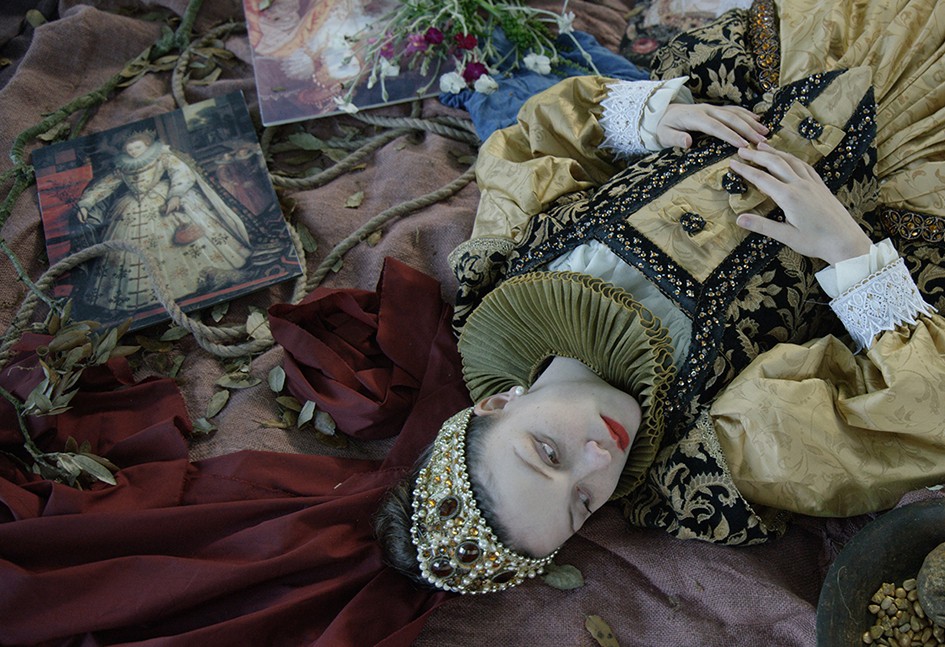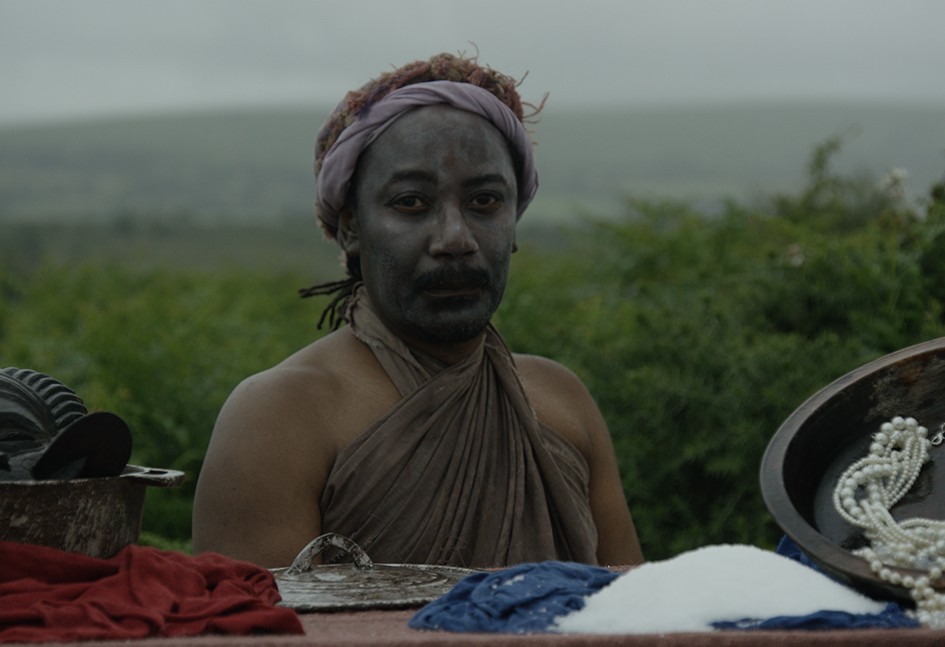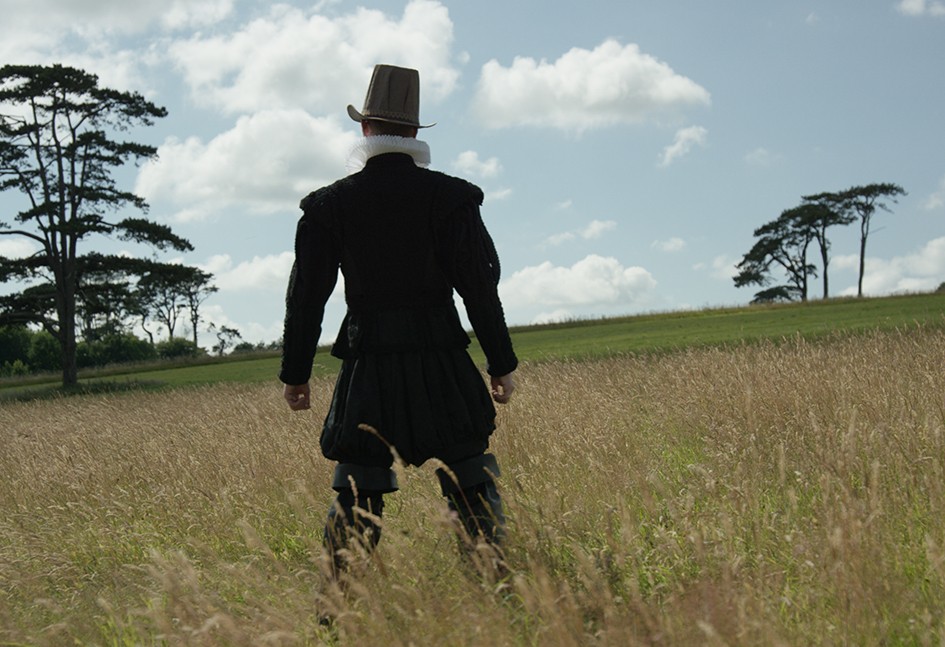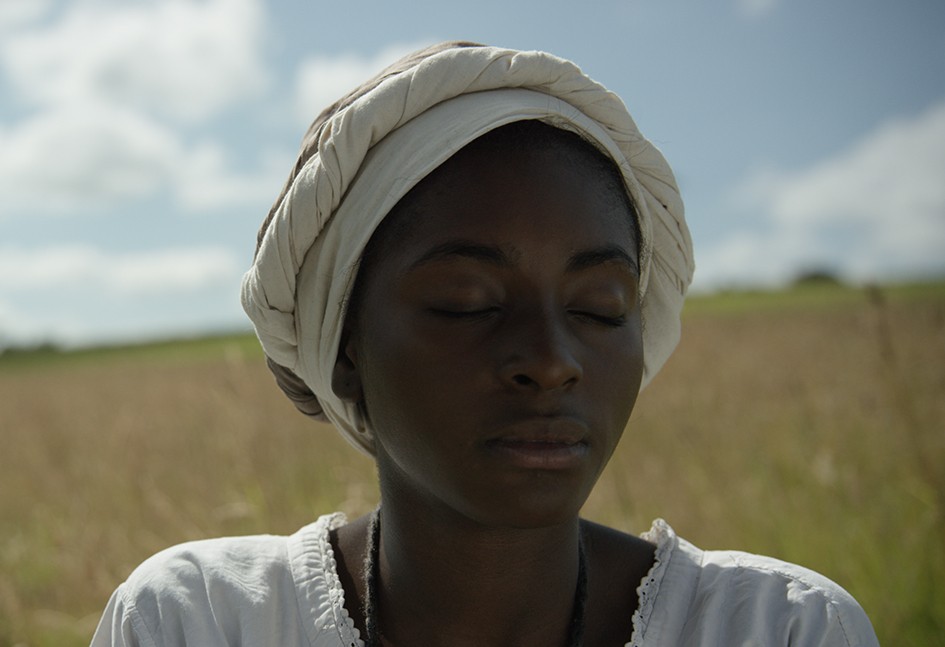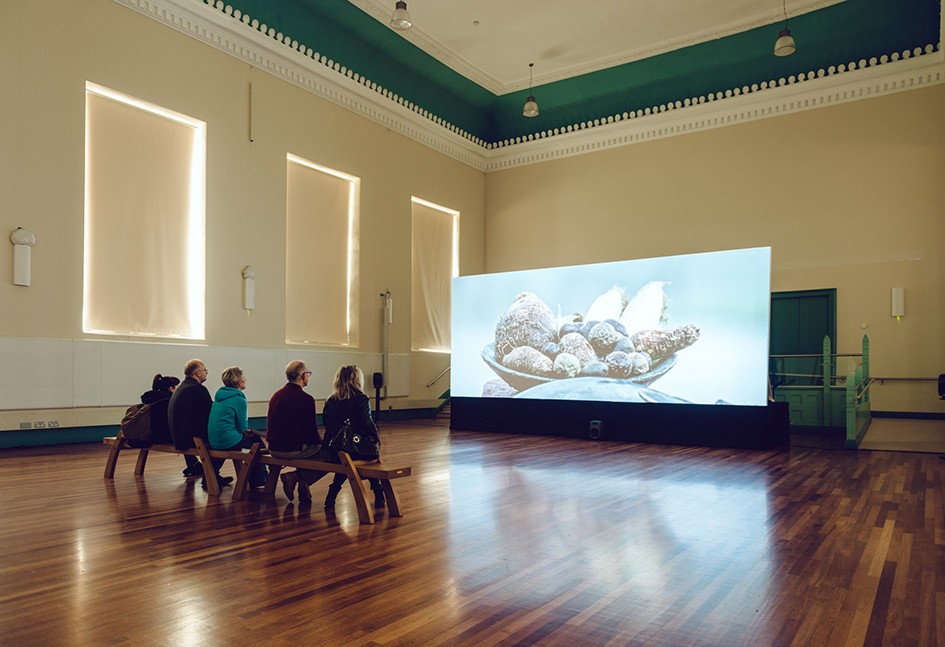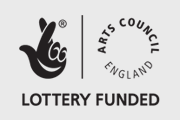Akomfrah’s starting point for the film was the connection between the waterways of the South West and the slave trade. In this film, the river landscape is transformed into an historic English port to re-imagine some of the first British encounters with people from Africa. Though a fictional narrative, the film is placed in a period when Britain’s position as a global, seafaring power coincided with the enforced displacement of millions of African people across the Atlantic. It reflects on the emergence of the ‘New World’ and the bleak history of the British Empire.
The film draws on the writings of a number of historical seafarers, whilst also referencing classic literature, specifically Milton’s Paradise Lost (1667) and Shakespeare’s The Tempest (1611). Akomfrah uses these texts to create a layered setting for the piece. The film uses an approach based loosely on playwright Bertolt Brecht’s notion of ‘theatre of alienation’.
Adopting the costumes and mannerisms of the sixteenth century, the actors in the film appear in a series of ‘tableaux vivantes’ or living pictures, which feel both archaic and imaginary. African and European locations, characters and goods overlap with each other, as a representation of the faded traces of stories that we are asked to re-imagine.

Tropikos continues and further elaborates on Akomfrah’s interest in the 16th Century, which began with Peripeteia (2012). Inspired by French philosopher Gaston Bachelard’s monumental studies of the ‘four elements’ and in particular his magisterial essay Water and Dreams (1944), Tropikos unfolds as a four part meditation on water as a ‘body’ that populates our dreams and reveries. Referencing the River Tamar, the Atlantic sea and the River Gambia, it’s also about how what Akomfrah calls “the aquatic sublime” also shapes our histories and our myths. Deploying many of the formal conventions of the costume drama and constructed as a series of ‘tableaux vivant’, Tropikos returns to the beginnings of English travel writing and tells the tale of colonial expansion and the beginnings of the African diaspora.
John Akomfrah (born 1957, Accra, Ghana) is a highly respected artist and filmmaker, whose works are characterised by their investigations into memory, post-colonialism, temporality and aesthetics, and often explore the experience of the African diaspora in Europe and the USA. Akomfrah was a founding member of the influential Black Audio Film Collective, in London in 1982, along with the artists David Lawson and Lina Gopaul, who he still collaborates with today as Smoking Dogs Films.
Tropikos premiered at Devonport Guildhall in October 2014. This commission is part of a series of artist films that explore the past, present and future of the River Tamar for the It’s All About the River Film Festival that took place in rural and urban areas, along the 22-mile tidal reach of the river in September and October 2014. The other artists’ commissions include: Mark Vernon, Melanie Manchot, Richard Allman, Kayla Parker and Stuart Moore, Uriel Orlow and Mikhail Karikis.
In January 2016 the Arts Council Collection announced that Tropikos was one of eight new commissions acquired by the collection in order to celebrate it’s 70th anniversary.
Tropikos (2014) – Directed by John Akomfrah, produced by, Lina Gopaul and David Lawson, Smoking Dogs Films – was commissioned by the River Tamar Project and made possible with a kind contribution from Arts Council of England, Plymouth University, Smoking Dogs Films, Cornish Mining World Heritage, The George Melhuish Bequest, The Elephant Trust, Naxos Audio Books.
